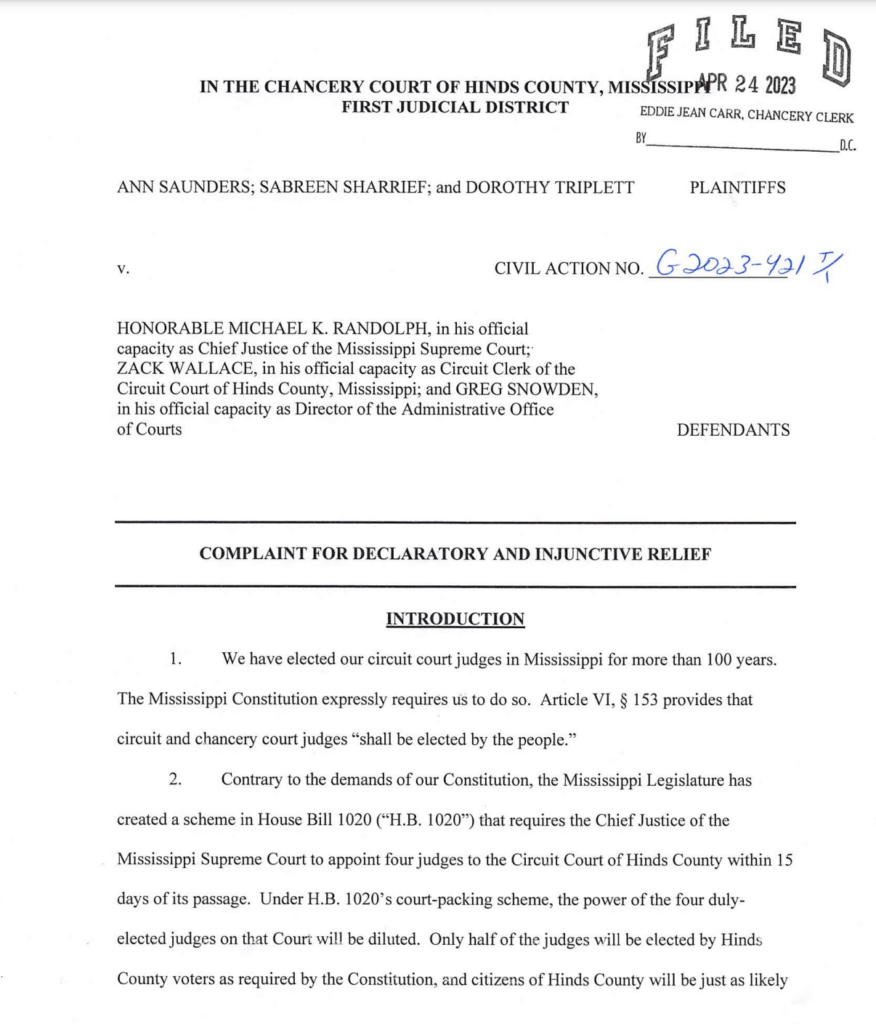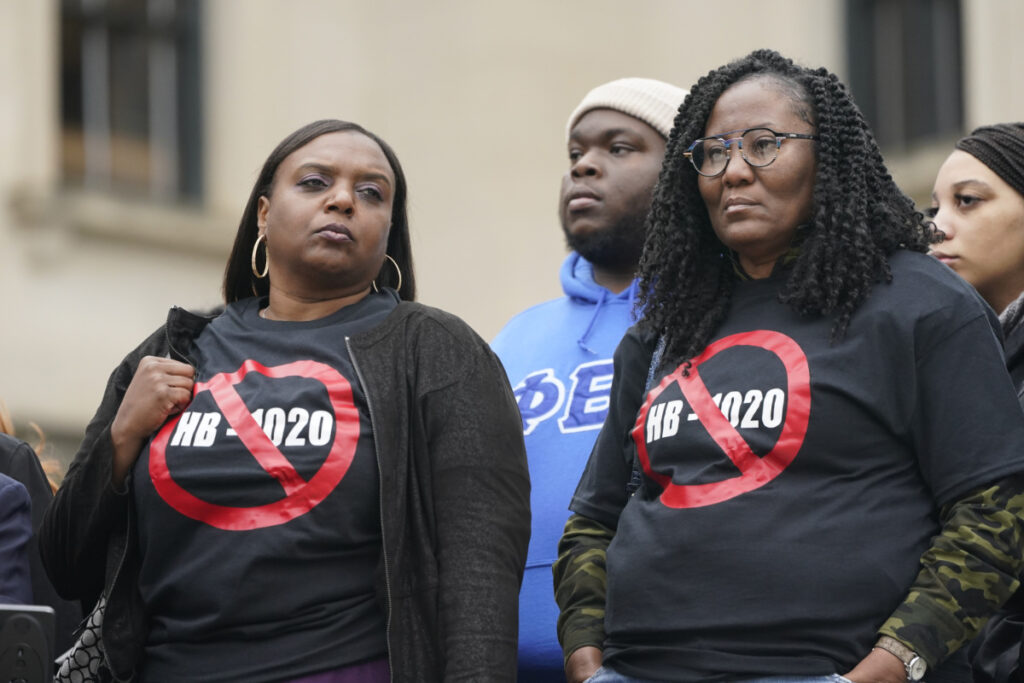Three Jackson residents are suing to stop House Bill 1020, saying the new law violates the Mississippi Constitution and dilutes local voting power with unelected, state-appointed judges.
Under H.B. 1020, Mississippi Supreme Court Chief Justice Michael K. Randolph, who is white, is required to appoint four circuit judges to hear cases in Jackson starting on May 9 and a judge for a new municipal court in the city’s Capitol Complex Improvement District starting in 2024. The law authorizes the circuit court judges until 2026 and the municipal court until 2027.
Lawyers from the MacArthur Justice Center at the University of Mississippi School of Law, the Mississippi Center for Justice, and the ACLU of Mississippi are representing the plaintiffs, who are Ann Saunders, Sabreen Sharrieff and Dorothy Triplett.

The plaintiffs argue in the complaint that just “half of the judges will be elected by Hinds County voters as required by the Constitution, and citizens of Hinds County will be just as likely to go before a circuit judge who is not elected—and who may have no connection to the county or its residents—as one who is.”
“Unlike the Court’s elected judges, these appointed judges need not reside in or have any connection to Hinds County. Thus H.B. 1020 singles out only the circuit in Hinds County—which is nearly 75% Black—for this extraordinary departure from constitutional requirements,” the plaintiffs continue. “It does not require or permit the Chief Justice to appoint a single circuit judge in any of Mississippi’s 21 other circuit court districts or 81 other counties.”
“The residents of Hinds County will be deprived of their constitutional right to vote for local circuit judges and to have their rights determined by courts legally exercising jurisdiction over them pursuant to the authority of the Mississippi Constitution.”
The organizations filed the lawsuit in the Hinds County Chancery Court Monday after the NAACP filed a lawsuit on Saturday, April 18, against H.B. 1020 and another new law that gives the state-run Capitol Police jurisdiction over the entire city. Gov. Tate Reeves signed both bills into law on Friday, April 17. The plaintiffs noted that 74% of Hinds County residents and 82% of Jackson residents are Black.

Mississippi Supreme Court Chief Justice Michael K. Randolph, Hinds County Circuit Clerk Zack Wallace and Administrative Office of Courts Director Greg Snowden are defendants in the state lawsuit. Like Randolph, the law gives Wallace and Snowden authority to execute the law. Wallace declined to comment on this story, while Snowden did not immediately return voice messages and an email to him this morning.
Gov. Tate Reeves pushed back at criticisms against H.B. 1020 in social media posts when he signed the bill on Friday, arguing that the new law is about “fighting for safer streets” and that “all decisions by the newly created inferior court can be reviewed without deference by elected county and circuit court judges.”
But the plaintiffs said the legislation provides “no such right of appeal” and rejected the notion that the new CCID court is a true municipal court.
“Municipal judges in Jackson as in other cities across Mississippi are appointed by local officials,” the plaintiffs said. “Those officials are elected by residents of the municipality where the judge will preside. While H.B. 1020 describes this new court as an ‘inferior court,’ the legislation provides no right of appeal to any court exercising the judicial power conferred by the Constitution, such as a circuit or chancery court. Consequently, it is not an ‘inferior court’ under Article VI, § 172 of the Mississippi Constitution, and there is no constitutional basis for its creation.”
In a statement announcing the lawsuit Monday, Saunders said H.B. 1020 proponents’ claim that “it is for our own good” is “deeply offensive to me.”
“African Americans in Mississippi died so that we could vote,” she said. “How does weakening the right to self-governance make us safer? Safety comes from communities having resources they need to develop the safeguards they know will be appropriate and effective. In the struggle for freedom, we want that responsibility. H.B. 1020 denies us that and makes us less of a democracy.”

MacArthur Justice Center Director Cliff Johnson described House Bill 1020 as a “mess” and Mississippi Center for Justice President and CEO Vangela M. Wade called it an “unprecedented power grab” in the statement.
“It is unacceptable for the state of Mississippi to target a city and county with majority-Black electorates, who regularly elect Black judicial and political officials, for the unique injustice of having one man, who is white, appoint as many Circuit Court judges as we can elect, and appoint the head of what we believe the law will show is a constitutionally illegitimate CCID Court,” Wade said.









